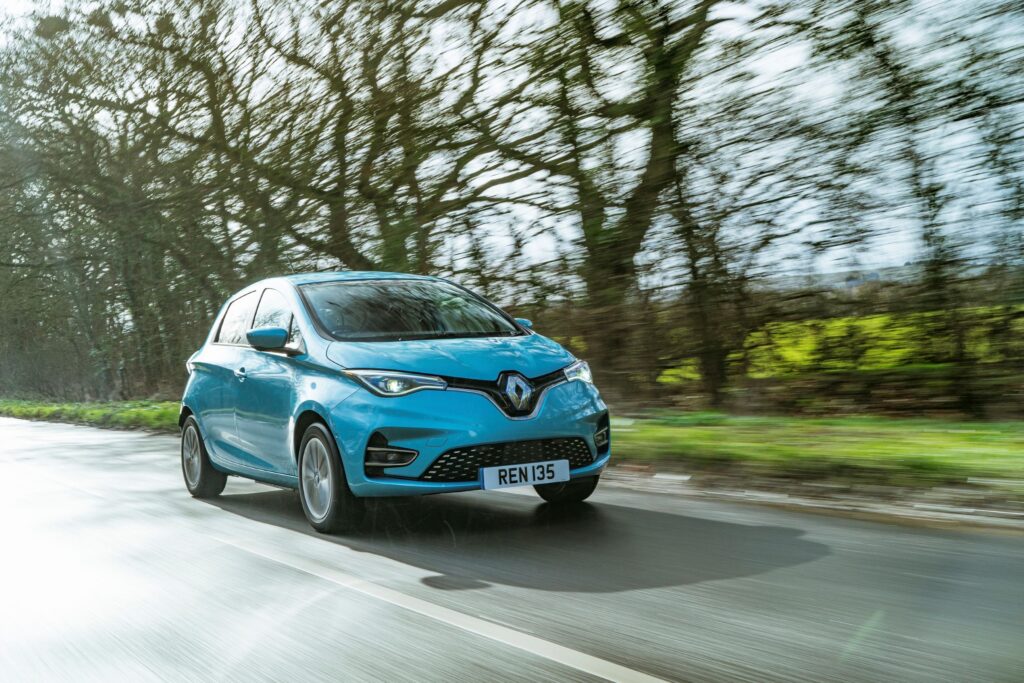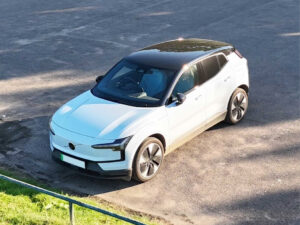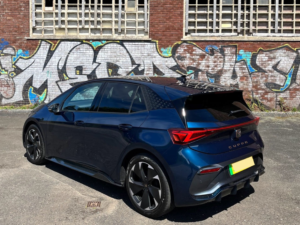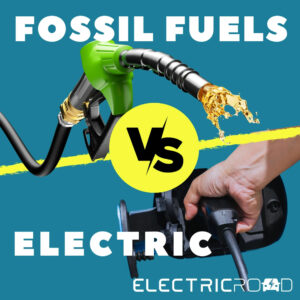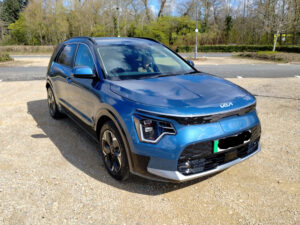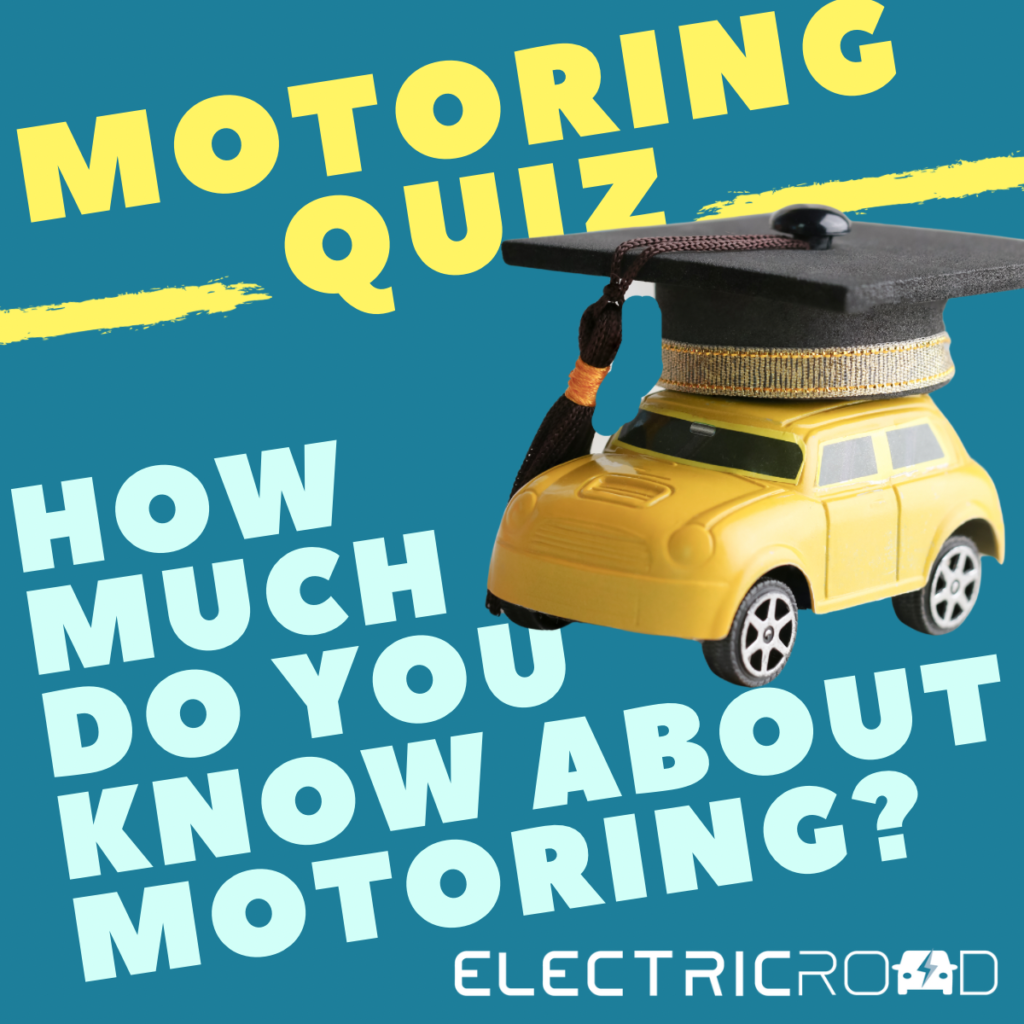Andy Miles drives a Renault Zoe GT Line R135 54kWh 2021.
This is Andy’s third electric car, he’s owned the Renault Zoe from new and drives 5,000-10,000 miles annually. The current mileage of the car is between 5,000-10,000 miles and he achieves 200 miles from a full charge.
Why did you choose the Renault Zoe GT Line R135?
It was the cheapest monthly payment I could find for a new EV with a >150-mile range and CCS charging.
Are you seriously considering your first or next EV? Then visit Electric Road’s CAR FINDER to get the right car for you!
Positives – List 3 or more reasons why you love this electric car
- I don’t “love” it, it’s just a transportation device. It gets me from A to B, reliably, comfortably and fairly cheaply, without poisoning passersby or causing catastrophic destabilisation of the climate.
- the extra range has been useful as I don’t have to charge up so often and I did do a 150-mile journey starting on 95% and finishing on about 15% without charging at all. I did plan to charge half way but the chargers were all in use.
- the lights are very good and I like the automatic dipping as I would sometimes forget or dip too late.
Negatives – List 3 or more things that you really don’t like about this electric car
- The Renault Zoe is not very efficient as the battery is bigger than I would like; a 40kWh is about the best for optimum range and efficiency. I only get 3 to 4m/kWh out of it which doesn’t compare well with the 24kWh LEAF I had, which was more like 4 to 5m/kWh.
- it is also smaller than my old LEAF and less comfortable
- the driver assist package is also inferior to the 2018 LEAF, lacking adaptive cruise control and with poor tracking in lane assist. I sometimes think I would have been better off keeping my old LEAF and using the train for the few long journeys I make.
Have you experienced any faults with the car? If so, what have they been?
It’s had its first annual service with no issues reported. There have been no faults.
What electric car(s) are you interested in next and why?
I am hoping that used prices will come down to a sensible level in 2 years’ time and I will be able to buy something for cash. I will see what is available then. The Hyundai IONIQ is one of the most efficient EVs and as I’m using an EV for environmental reasons, efficiency is a major factor.
Home charging unit – outline both positive & negative elements
My charger is an EVolt unit (now SORCO). I got it for free as part of a trial conducted by Western Power Distribution (now National Grid) into smart chargers – https://cleantechnica.com/2019/02/23/uk-electric-nation-ev-smart-charger-trial/.
It stopped working just within the guarantee period and an engineer put a new motherboard in. He omitted to reset the software so it no longer works as it should and I’ve not been able to get anyone to come out to fix it. It does the job though and is a 7kW charger so just right for my new EV which will charge at up to 22kW on AC.
Electricity supplier & tariff – outline both positive & negative elements
I’m with Ecotricity – I like their business model of reinvesting into new renewable plants, though they have been very hampered by our regressive Tory government with bans on onshore wind. I’m on a variable tariff for people with EVs. It used to be cheap at about 12p/kWh but now it’s up to around 35p. It has taken me from before the lockdowns to get a smart meter installed and now I have one I’d like to be able to use off-peak electricity at a reduced rate. Despite their reputation for good customer service, I’ve not been able to get any answers from them as to whether they do anything, so I might have to move to Octopus.
What public charging networks would you recommend to others and why?
Having been driving EVs for over 7 years now I am used to using the motorway service areas for charging and don’t use any others. They used to be Ecotricity, free to start with, 15p/kWh later on and very reliable for CHAdeMO. Now they are GRIDSERVE at about 65p/kWh and becoming inadequate in number. As in many places, there are still only 2 chargers per station despite the huge increase in EVs on the roads. I’ve not had any reliability problems but have come across other drivers having problems. CCS is less reliable than CHAdeMO.
Insurer – outline both positive & negative elements
I am with Hastings Direct as their insurance was at a reasonable price for very comprehensive cover. This year they have hiked the price by about £200 for no obvious reason so I will be looking elsewhere.
Please itemise where you’re saving money (or not) owning & running a Renault Zoe
I can’t really give any accurate figures as my only reason for getting an EV is environmental and although the low costs are a bonus, I’m not interested enough to work it all out. I used to spend about £50 to fill up with fuel in the pre-EV days every 2 weeks or so. ICE cars require oil changes and generally cost money for maintenance. When I first had an EV, electricity was free on the motorways but much more now, as is fuel. In 7 years of EV driving, apart from tyres and wipers, I’ve not had to buy anything so I must have saved a fortune over the time!
*library image used.
See other owner reviews here


